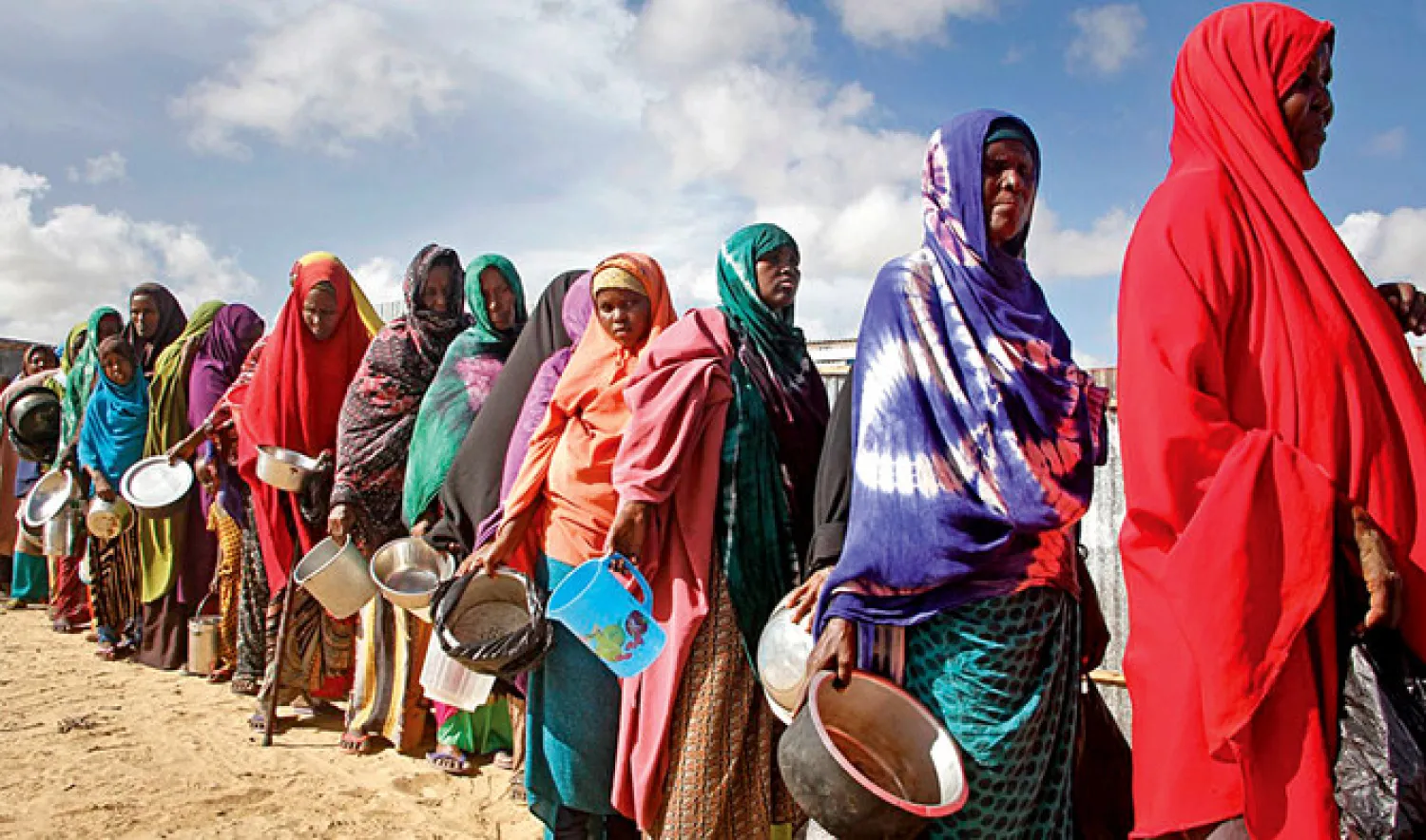Nearly one in four people in Somalia are facing acute hunger as drought ravages the conflict-wracked country, following three seasons of poor rains and a fourth on the way, the United Nations warned Monday.
The crisis is expected to worsen, leaving 4.6 million people in desperate need of food aid by May 2022, the UN said, adding that the country had not seen a third consecutive failed rainy season in over 30 years, AFP reported.
Shortages of food, water and land for grazing have already forced 169,000 people to flee their homes, with that number projected to hit 1.4 million within six months, the UN said in a statement.
In recent years, natural disasters -- not conflict -- have been the main driver of displacement in Somalia, a war-torn nation that ranks among the world's most vulnerable to climate change.
"It is a perfect storm that is gathering," Adam Abdelmoula, the UN humanitarian coordinator for Somalia, told AFP in an interview, warning that 300,000 children aged five and under were at risk of severe malnutrition in the coming months.
"They will perish if we don't help them in a timely manner," he said, as the UN called for nearly $1.5 billion (1.3 billion euros) in funding to help tackle the crisis.
Some 7.7 million, nearly half the country's population of 15.9 million, will require humanitarian aid and protection in 2022, an increase of 30 percent in a year, the UN said.
At least seven in 10 Somalis live below the poverty line, and the drought has destroyed already precarious livelihoods, with families losing their livestock and grappling with high inflation as crop production falls.
"There is a high risk that without immediate humanitarian assistance, children, women and men will start dying of starvation in Somalia," the country's minister of humanitarian affairs and disaster management Khadija Diriye said.
Somalia's government declared the drought a humanitarian emergency last month.
Failed rains and flooding have also wreaked havoc in Kenya and South Sudan, where farming and livestock-dependent communities are struggling to cope with climate disasters.
The food and water shortages have raised the risk of conflict as people compete for access to pasture and essential supplies.
The United Nations refugee agency UNHCR in October described the South Sudan floods as the worst seen in some areas since 1962, blaming the downpours on climate change.
East Africa endured a harrowing drought in 2017 which pushed Somalia to the brink of famine, with water-borne diseases resulting in hundreds of deaths in the Horn of Africa nation.
Experts say extreme weather events are happening with increased frequency and intensity due to climate change.









